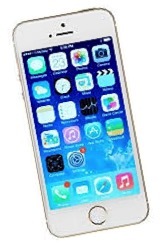Are Sellers Asking the Wrong Questions?
Who is the decision maker?
What are the customer’s primary business drivers?
How much is the deal worth?
What’s their timeframe for making a decision?
What are the next steps?
Is there any way to close the business sooner?
These, along with any number of other similar tracking questions, are staples of sales forecast reviews that are transpiring within sales organizations at companies all over the world. Proactively coaching your sales teams, however, requires more than just tracking deals on the forecast.
Personally, I am a huge proponent of qualification, in order to know how best to allocate resources toward those opportunities that present the greatest potential. But there is a catch. These qualifying questions simply identify the status of each deal, which does nothing to make the salesperson or sales team more effective in terms of the opportunity itself or developing their skills down the road. In fact, tracking questions serve no purpose other than gathering information.
On the other hand, proactive sales questions (asked strategically) enable sales teams to accomplish much more than simply gathering information. For example, strategic questions are one of your best vehicles for establishing credibility and piquing the customer’s interest. Strategic questions are also one of the best ways to convey value, forge relationships, develop internal champions, create referrals, and secure smaller commitments on the way to consummating the larger sale.
The desire to track deals on the forecast is a given in sales. But, shouldn’t there be a similar desire to increase the effectiveness of the sales team? That’s why I advocate the addition of a series of ‘forward-thinking’ strategic sales questions that promote thought leadership and are designed to help sales teams develop and execute more effectively moving forward.
Some of the more thought provoking questions I teach include:
Q: How many reasons does the customer have to buy from you?
Q: Is there anything we can do to increase the customer’s sense of urgency for making a decision?
Q: What can we do to get deeper, wider, and more strategic within the account?
Q: How can we position our solutions as the most cost-effective alternative?
Q: What business issues, decision factors, or ideas are you prepared to raise in your calls that customers may not think to bring up on their own?
Q: How are you differentiating yourself from competitors who are targeting your same list of prospect accounts?
Q: How can we help our internal champions secure the approvals necessary to move forward with a decision when we’re not onsite or in the meeting?
Q: Is there anything we can do to be more effective on future customer calls?
When coaching individuals or entire sales teams, my favorite question is one of the simplest: “What business issues, decision factors, or ideas are you prepared to raise in your calls that customers may not think to bring up on their own?”
If you have read any of my books or experienced one of my training classes, then you know that I am NOT a fan of the old-school mentality of “uncovering needs.” Truth be told, customers aren’t always clear as to what they need, in which case, you’re not going to find out by barraging them with probing questions. Even when the customer knows exactly what they need, potential buyers are often reticent to share their needs with a salesperson they don’t yet know or trust.
That’s why I preach Needs Development—the skill of proactively raising business issues or decision factors that otherwise wouldn’t have come up.
To prove the point that customers aren’t prone to fully articulating their needs, try this experiment. Simply ask one of your friends or coworkers why they own a cell phone (just as an example). Some will say it allows them to communicate. Others might mention that it gives them access to email or provides a sense of security. I don’t doubt those benefits for a minute. But, that’s NOT why people buy or own cell phones!
Ask them if they also use their cell phone to take pictures or videos. Does it give them greater mobility, enabling them to be in closer touch with their customers? Do they use it to manage their calendar, or to listen to music while on the go, or to play video games during periods of downtime? Does their phone also serve as a contact manager, hand-held calculator, flashlight, timepiece, alarm clock, and weather forecaster, in addition to providing directions, traffic alerts, and GPS coordinates to their favorite restaurant?
Most cell phone users leverage technology to address a wide variety of needs. But when asked, “What do you look for in a cell phone?,” the vast majority of potential buyers will mention only some fraction of the aforementioned capabilities. So, who’s going to bring up the rest? If not you, then you leave the door wide open for one of your competitors to be seen as a more valuable resource.
Hence my question: “What ideas, business issues, or decision factors are you prepared to raise that the customer may not think to bring up on their own?”
Thomas A. Freese's Blog
- Thomas A. Freese's profile
- 2 followers



